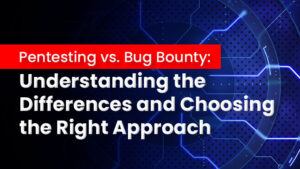Introduction
DevOps is one of the most important accelerators of rapid and consistent software development and deployment today, as it combines innovative tactics and processes to improve team communication and continuously deliver high-quality software or features.
Furthermore, it employs technologies that power up the software development lifecycle while also increasing the quality and rate of deployments by boosting cooperation and openness throughout the process. DevOps uses many technologies and tools to generate valuable assets for organizations.
Virtualization is another notable methodology that assists DevOps in ensuring speedy, consistent, and stable deployments. This article will cover virtualization fundamentals and help to understand their role in DevOps.
Check out our DevOps Courses now if you want to start your career in DevOps.
DevOps
DevOps, which combines innovative tactics and processes to promote improved team communication and continuous delivery of high-quality software or features, is one of the primary enablers of rapid and consistent software development and deployment today.
Additionally, it uses technologies that speed up the software development lifecycle while also enhancing quality and deployment speed by encouraging teamwork and openness throughout the procedure. DevOps uses various technologies and techniques to produce a useful asset for businesses, whether it is cloud computing, automation, or something else.
Virtualization
Virtualization is the technique by which teams can generate a useful virtual or simulated version/instance of the software on a single server, simulating its varied hardware and software settings.
These resources are then partitioned into several virtual systems known as Virtual Machines, which are emulations of hardware and software setups. Even though they run on a piece of the physical device, each virtual machine has its operating system and acts as separate software.
Different Types of Virtualization
Virtualization is classified into server virtualization, network virtualization, and desktop virtualization.
Server virtualization enables many operating systems to operate concurrently on a single physical server. This results in a more efficient server with lower operating costs, improved performance, and expanded workload capacity, all while decreasing physical server complexity.
Network virtualization simulates physical networks in a virtual environment, allowing applications to execute on the simulated network just as they would on a physical one. Virtual networks outperform real networks in terms of operational benefits while costing less.
Desktop virtualization replicates the environment and settings of a desktop instance and the programs hosted on the device. This enables users to access company resources from off-site or devices that could not ordinarily operate the hosted services. This technology enables users to access the computing power of more complex equipment from regular or even mobile devices, giving them the capabilities they require to do tasks on the go.
The virtualization applications are varied, but they all provide the capacity to access and exploit resources that would otherwise be prohibitively expensive. Virtualization is a strong tool with several applications for businesses of all sizes, but it has particular benefits for organizations that use DevOps systems.
How Virtualization and DevOps Work Together
DevOps strives to optimize the software development, testing, and deployment processes using collaboration and cutting-edge technologies. DevOps teams may build and test within simulated settings that operate the complete range of consumer devices while also testing deployment on virtual live environments, due to virtualization. This allows developers to take place concurrently with real-time testing of how the changes will affect the overall system. This level of testing precision results in significantly shorter deployment times and increased stability.
DevOps teams design, test, and deploy software solutions within live simulated environments while using significantly lower processing resources. As a result, DevOps teams can accomplish more with less. The flexibility of virtualization and containerization technologies enables continuous deployment by allowing upgrades to be tested and deployed on numerous servers with improved stability and consistency. Both virtualization and containerization play significant roles in maximizing enterprise resources to ensure development resources are efficiently exploited at each level of the DevOps process.
Advantages of Virtualization in DevOps
Some prominent advantages of virtualization are:
- Allows DevOps teams to focus on vital activities, reducing strain.
- It saves energy since it does not require local software or servers but instead relies on virtual computers, which reduces energy consumption.
- Increases the use of hardware.
- Sets up the local test environment for various testing forms without worrying about system crashes and malfunctions.
- Allows for quicker server provisioning.
- Reduced failure rate by allowing the team to run concurrent testing on various release and patch levels.
- Aids in developing dependable backup systems by automating the data backup that occurs every minute.
- Guarantees resource efficiency.
- IT overhead and administration costs are reduced.
Challenges of Virtualization in DevOps
Below are a few of the virtualization problems in DevOps:
-
Requires Infrastructure Knowledge
To employ virtualization in DevOps, teams must have deep knowledge of the technology, which can take time for enterprises. Organizations will need to train existing personnel for this, which may be both time-consuming and costly.
Virtualization requires time for configuration and application, making the process time-consuming.
Remote access and virtualization of desktops and applications put data breaches and cyberattacks in danger, raising security concerns.
Role of Virtualization in DevOps
The fundamental goal of DevOps is to increase the pace and quality of software development, which is made feasible by the widespread usage of virtualization. Virtualization is an essential component of DevOps, affecting every process stage, from development, testing, and deployment through operations, delivery, and maintenance.
DevOps teams can employ virtual services instead of production services and execute regular and comprehensive testing with the help of this methodology, even if important components are absent from the system design. It mimics the behavior of the critical components and eliminates major bottlenecks that could cause a delay in release and time-to-market.

Other prominent areas where virtualization help DevOps are:
- Provides a consistent and stable development and testing environment.
- Since the program is developed in a virtual environment, it catches faults faster and greatly reduces check-in and release failure rates.
- Allows simultaneous testing on different release and patch levels and integration with other software systems, improving product compatibility and interoperability.
- Provides a consistent, predictable, and failure-tolerant environment, increasing software performance in configuration control, safety assurance, and cybersecurity.
- Reduces dependability and maintenance expenses after deployment.
Conclusion
In recent years, virtualization has significantly aided DevOps in reforming software development and making it less prone to hidden faults and difficulties. It has enabled optimal hardware usage, cut unnecessary costs, and provided several additional benefits to enterprises worldwide. The technology employs automation and virtual machines to increase application stability, device functionality, configuration, and memory state, further ensuring the end product’s quality.
When implementing the industry’s most cutting-edge software engineering technique, it is critical to have an effective virtualization strategy and toolchain in place if users want the most benefits from DevOps virtualization.








